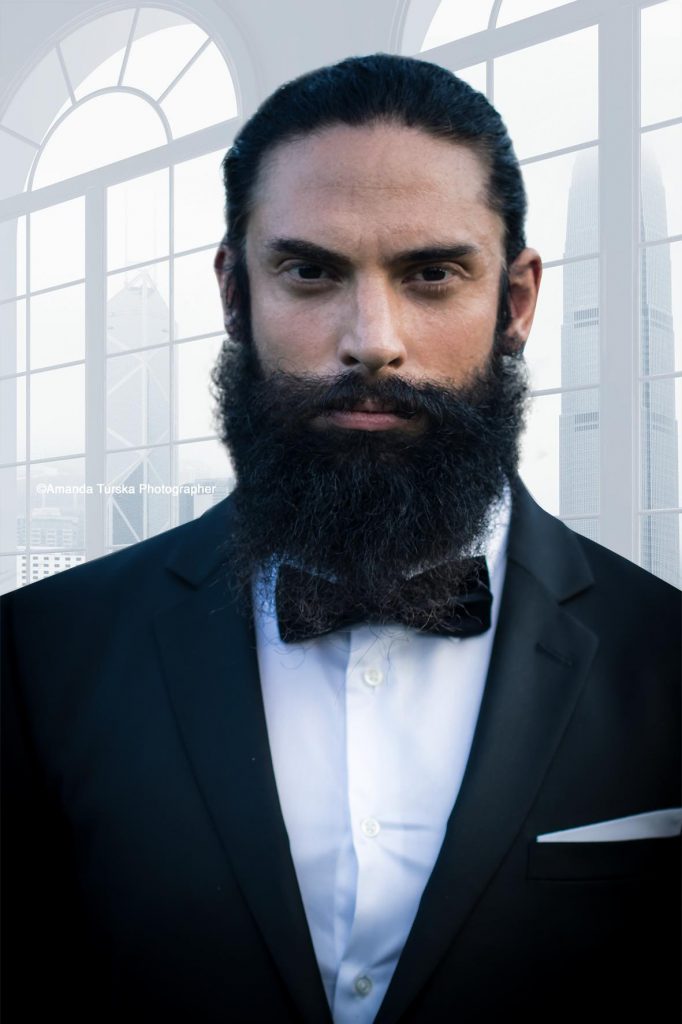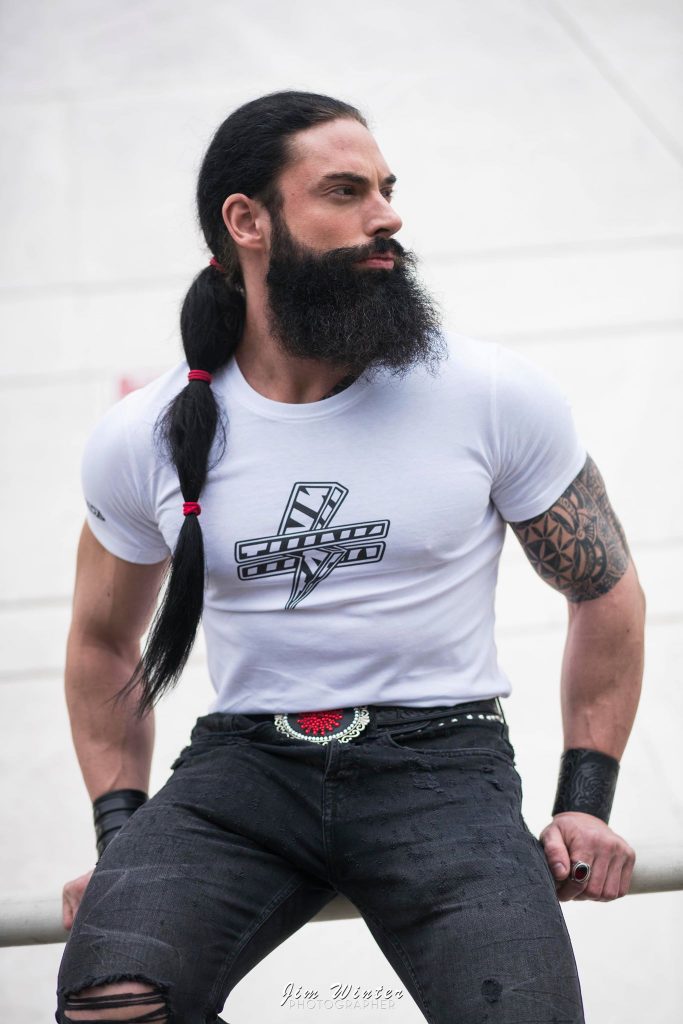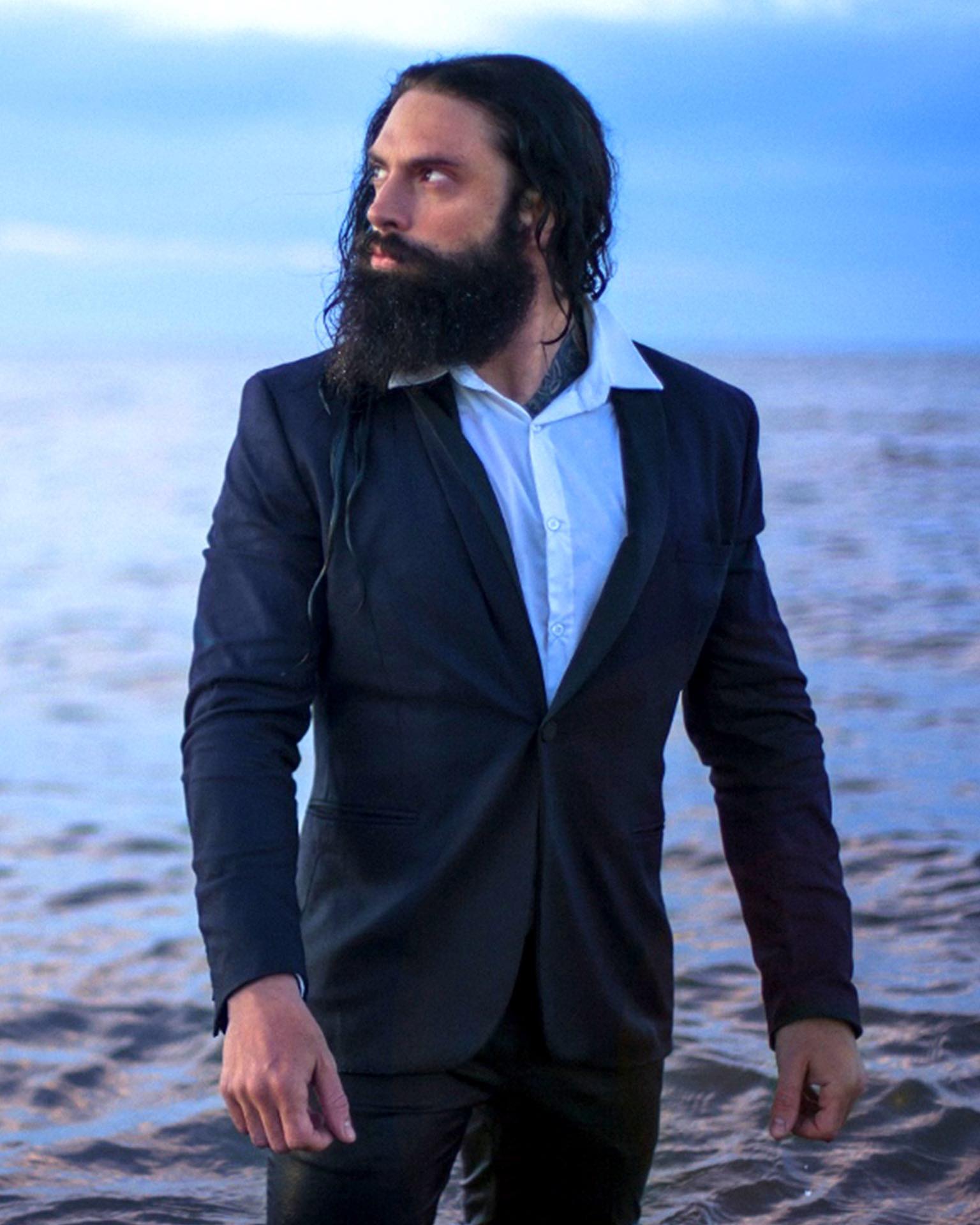By Randi Morse
David Michigan is a celebrity life coach and fitness trainer that specializes in mindfulness. He helps his clients achieve their physical fitness goals through personalized nutrition and training programs that include accessing the power of the mind through hypnotherapy and visualisation. He founded The Michigan Academy, which offers online training to help others get in shape physically and mentally. He also works as an actor, model, and motivational speaker.
Can you tell us a bit about your upbringing and your life before fitness and mindfulness?
Before devoting myself completely to fitness and mindfulness, I was a fan of human psychology and I was always fascinated by emotions, and more precisely, transmitting strong positive emotions to people. So, I practiced magic a lot as an activity because I saw that I could instantly get very strong emotions thanks to that. Then very quickly, I became interested in mentalism and hypnosis, in order to go even further in the transmission of emotions. But I was limited. At the time there were not all these social media [platforms], so I always had to exercise in a small group, which was quite frustrating for me because there was a discrepancy between what I was doing and my ambitions.
What inspired you to start your personal journey towards physical and mental health?
My mother, [who is] very athletic, always encouraged me to do a lot of sport activities – judo, football, bodybuilding – while my father was more focused on mental techniques – personal development, healing – and unconsciously transmitted to me the importance of working the mind as well as the body. So I’ve always been interested in physical and mental health from a very young age, it was done gradually and naturally. But my desire to help others deeply comes from the fact that I’ve always felt happy. I know it may seem strange to some people, but my close friends from childhood will confirm it. I always felt good, whatever the events.
While trying to analyze why I felt happy almost all the time, I realized one thing [was] extremely important. Happiness really does not come from outside stimuli, but from inside our thought system. At the time I had no money, no muscular body, no real resources, yet I was always happy. And I spent my time analyzing why, so that people could model this thought system and find happiness.
During your journey, can you recall a single moment that had the biggest impact on you?
One moment that had a big impact on me, was the death of my grandfather, because he was very well in his mind, but his body did not follow. It was the day I realized that the mind and body really work together. You may have the best mind possible, [but] if your body doesn’t follow, you’re not going to go very far. And vice versa. I really understood [that] day that we should not separate the body and the mind, [but] work the two as one entity.
You’ve spoken a lot on the power of the mind through visualization and affirmations. Can you tell us about the first time you realized the power this had on your own life?
The first time I realized the power of visualization was in my romantic experiences. I realized that I could get what I wanted if I already experienced it in my mind. Then I reproduced the law of attraction in every aspect of my life – work and sport – and I noticed that I also managed to get what I wanted.
The secret of visualization is to involve [not just the] senses but also emotions. The unconscious mind does not make the difference between what you imagine and reality. You must already live 100% of the experience in your mind and in your body, to see and feel it materialize quickly.
What inspired you to take your personal success and turn it into a career of helping others?
I was 14 years old and one night I had a founding dream. I saw my future parading before me, and I saw that my vocation was to help others. I know it may sound a little crazy. But that’s how it happened, and that vision never left me. That morning when I woke up everything seemed clear to me. I knew what my life path was going to be. I still didn’t know how I was going to act, but I knew what my direction was going to be. I was a very happy child in my family and I felt that I could give to the others a little of this solar energy of which I was the depository somehow.
Can you go into depth on what ‘Wake the Real You’ means to you?
In every human being, there are actually two entities. On the one hand, there is the culturally programmed self, who has all the roles and social rules. And on the other hand, the natural one, where it keeps all its emotional memories, where you think of your fantasies, your desires, [and] your dreams; the kind of things you do if no one is looking at you and the things you wouldn’t even want your best friends to know. And often what happens is that because of the roles that society forces you to play, or perhaps a relationship that you have had in your past that has limited you, a person must enclose all these fantasies, all his desires, everything is a dream in itself to keep them safe, and yet they are always there, deep down, waiting for something or someone to make them emerge in you.
Waking the real you is simply unlocking all your abilities and potential, that you always had inside of you, but [is] not awake yet.
Do you believe COVID-19 will cause more people to refocus on awakening their real selves?
For some people, of course. But for the majority, I don’t think so. Because many people live this experience in a passive way and not in an active one. We need a more radical change to really focus and awake ourselves. For instance, completely change the environment permanently to have a real “click”. Leave the job that we don’t like to do, stop a relationship that harms you, embark on your passion permanently and definitively.
You must take action and not go back.
Have you achieved all of your goals? What is next?
Of course not, I have a lot of objectives, and I think that we must continually have them. We don’t really take pleasure when we achieve a goal, this pleasure is very short and limited, we really take pleasure in the path we take to go towards these goals.
I would like to do three things now; enlarge my Michigan Academy and have more than one million students, start doing major seminars in public, and release a documentary series about my life and my future with Netflix – coming soon.
In working to help others, what has been your favorite success story?
When I lived in Marseille, in the south of France, I did a lot of hypnotherapy sessions during the day to help as many people as possible. And I managed to heal a man of 50 years old who had his back blocked for more than 15 years. He managed to get up painlessly, hug me, and cried in my arms. He was so happy but at the same time he told me that life was unfair and that he should have met me 15 years ago, and that he would have avoided all these setbacks. I explained to him that the most important thing was the present moment, and that we should not focus on the past.
What is the biggest piece o f advice you would like to leave our readers with?
f advice you would like to leave our readers with?
To do everything in your life that you truly want, in order not to have regrets.
During my quest for well-being and fulfillment, I have managed to determine what seems to me to be the main obstacle to this feeling that we all seek. This toxic obstacle is regret. You may not need to reach all of the goals you have set in your life, but regret will appear if you don’t even try to get there. And if there is one thing you will not want to take with you to the grave, it is regret.
When I was younger, I spent a lot of time with the elderly, and all of them told me that they had regrets that they could no longer erase – [not] changing jobs, moving to another country, leaving everything to start over, [or] change of a romantic relationship. I [could] go on, but these are the regrets that were expressed most widely.
In order to prevent this kind of extremely negative feeling, you will have to accept a certain amount of selfishness. Always remember that you live for yourself, and that time flies. If you need to make room for your attention to others, remember that you can do [this] without their judgment. Move away from sources of regret, listen to your desires and especially your needs, and learn to draw from them the most superficial moral judgments, and you can start to [create] certain fulfillment.
Cover Photographed By : Jim Winter


